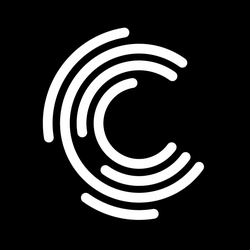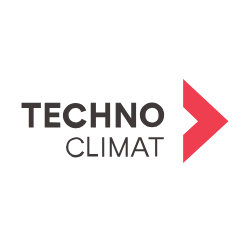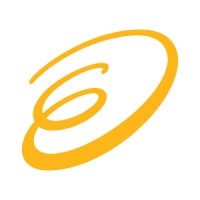
CSM Network Program
At a glance
- Maximum amount : 2,000,000 $
- Up to 70% of project cost
- Open Date : June 14, 2024
- Closing date : September 27, 2024
- Mining, quarrying, and oil and gas extraction
- Manufacturing
- Other services (except public administration)
- Public administration
- Quebec
- Non-profit
- Public or Parapublic institution
- For-profit business
- All revenue ranges
- All organization sizes
- All groups
- Higher Education
- Research
- Environment
- Economic, Social and Community Development
- Business Associations
- Rural / Remote communities
- Business owners / entrepreneurs
- Nonprofits / charities
- Academia / students
- All structures
- Provincial
Overview
The Program of the Scientific Research Network on Critical and Strategic Minerals (Réseau MCS) aims to foster collaborative research and innovation projects to advance knowledge and the value chains for critical and strategic minerals (CSM) in Quebec. Eligible activities include technical or technological research projects that address industry needs, involve at least five partners (including two companies and two research institutions), and focus on specific research axes such as ESG principles, exploration, extraction, recycling, and transformation.
Activities funded
The eligible activities for this grant focus on advancing research and innovation in the critical and strategic minerals sector, with the ultimate goal of enhancing cooperation between industries and research institutions in Quebec.
- Collaborative research projects addressing technical and technological needs of the critical and strategic minerals industry.
- Initiatives that foster knowledge development related to the value chains of strategic minerals in Quebec.
- Projects aimed at social acceptability, reducing environmental footprints, or upgrading standards and taxation in the minerals sector.
- Efforts to improve communication and integration with host communities and regions, highlighting anticipated benefits.
Eligibility
Eligible organizations and companies must meet specific requirements to qualify for project funding under the Programme Réseau MCS.
- The organization must be active in Quebec.
- The organization must have a physical establishment in Quebec.
- The organization must be a member of the Réseau MCS and the CRITM.
- The applicant can be a for-profit enterprise operating in Quebec's mining and industrial sectors, registered with the Quebec business registrar.
- Non-profit organizations (NPOs) operating in various research and development sectors in Quebec are eligible.
- Eligible applicants include institutions within Quebec's education network and higher education involved in various research and innovation sectors, or a public research institution.
Who is eligible?
This grant targets organizations and companies engaged in metallic transformation sectors related to critical and strategic minerals (MCS) in Quebec. Eligible entities must be active members of both the Réseau MCS and CRITM, and meet certain operational criteria.
- Be based and operational in Quebec with an establishment within the province.
- Be a regular member of both the Réseau MCS and CRITM.
- Be a for-profit enterprise operating in Quebec's mining and industrial sectors, legally registered with Quebec's Enterprise Registrar.
- Be a Quebec-based non-profit organization (NPO) participating in research and development sectors.
- Be part of Quebec's educational and higher education network, involved in research and innovation sectors, or be a public research institution.
Who is not eligible
This grant explicitly outlines certain restrictions on eligibility for companies and industries. These restrictions are in place to maintain appropriate use of funds and align with specific program goals.
- Ministries or government budgetary organizations.
- Enterprises listed on the Register of Ineligible Enterprises for Government Contracts (RENA).
- Companies that have previously failed to meet obligations for financial aid from Quebec government entities.
- Businesses that are insolvent, bankrupt, or have filed for insolvency protection.
- Entities not meeting integrity standards expected of public fund recipients.
Eligible expenses
This grant program allows for the support of projects that align with the thematic and priority issues identified by the MCS Network. Supported projects must correspond with one or more of the research areas and address specific priorities related to the value chain of critical and strategic minerals (MCS).
- Projects focused on the development of pre-competitive research to advance the extraction and processing sectors of MCS.
- Research initiatives aimed at improving environmental, social, and governance (ESG) principles within MCS operations in Quebec.
- Projects involving collaboration between at least two businesses and two research institutions to innovate within the MCS value chain.
- Solutions designed to share and develop expertise among MCS Network members, enhancing knowledge and technology in the field.
- Research and innovation projects responding to collective industry needs, particularly in the areas of resource identification, processing technologies, and knowledge sharing.
- Initiatives that contribute to the social acceptability and environmental impact reduction of MCS activities.
Eligible geographic areas
This grant is specifically available to organizations and businesses active and based within the boundaries of Quebec. This geographical eligibility ensures that supported projects contribute to the development and innovation within Quebec's mineral sectors.
- Organizations with operations located in Quebec, Canada.
- Businesses with an establishment in Quebec.
Selection criteria
The evaluation and selection of projects for this grant are based on specific criteria with allocated point scores to ensure alignment with the grant’s objectives.
- Pertinence of the project (30%)
- Adéquation de la demande avec l’axe de recherche concerné, les priorités de recherche identifiées et les critères du Programme.
- Adéquation du projet avec les besoins du projet, l’expertise et la collaboration démontrés par le requérant.
- Expertise du requérant en MCS en lien avec le projet.
- Pertinence du projet par rapport à la mission reconnue et au modèle d’affaires du requérant.
- Qualité et complémentarité des partenaires affiliés au projet.
- Qualité du projet (40%)
- Description claire et réaliste du plan d’affaire du projet, de sa méthodologie, des résultats attendus et de l’échéancier.
- Indicateurs et méthodes prévues pour suivre les progrès tout au long du projet et pour évaluer les résultats à la fin du projet.
- Démonstration des ressources humaines nécessaires à la réalisation du projet, y compris de leur expertise.
- Qualité et diversité de l’implication des entreprises ou d’organismes ou centres de recherche engagés dans le projet et leur capacité organisationnelle.
- Capacité du projet en ce qui concerne la formation et la relève.
- Qualité du montage financier (réalisme, diversité des sources de financement, financements complémentaires ciblés, implication financière des entreprises, etc.).
- Plan de dissémination scientifique (ex. publications, brevets, etc.).
- Identification des stratégies de contingence.
- Retombées économiques, sociales et technologiques (30%)
- Effets durables sur les activités du requérant.
- Capacité du projet à susciter l’adhésion, la synergie et la participation du ou des milieux preneurs et des partenaires (démontrée dans les lettres d’appui).
- Retombées économiques potentielles sur le plan local, régional et national.
- Retombées sociales potentielles sur le plan local, régional et national.
- Retombées technologiques potentielles sur le plan local, régional et national.
How to apply
Preparation of the letter of intent
- Write a letter of intent of 4-5 pages describing the key elements of the project, including the title, summary, positioning concerning the axes and issues of the network, planned activities, duration, participation of partners, anticipated budget, and expected outcomes.
- Ensure that the letter is ready to be submitted between June 14 and July 12, 2024.
Submission of the letter of intent
Preparation of the complete application (if selected)
- If the letter of intent is accepted, prepare the complete application including specific forms provided by the CRITM.
- Provide all letters of commitment from partners including relevant details such as their organization status, their role in the project, and their contribution.
Submission of the complete request
Additional information
This grant supports research and development projects related to critical and strategic minerals (CSM) in Quebec, aiming to foster collaboration between research entities and industry stakeholders to achieve significant economic, social, and technological advancements.
- Valid dates for the first call for projects: Letters of Intent (LOI) from June 14 to July 12, 2024, and complete applications due by September 27, 2024.
- Grant amount: Up to $2,000,000 with a maximum funding rate of 70% of eligible expenses.
- Projects must involve a minimum of five partners, including at least two companies and two research institutions.
- Duration: Projects can last up to three years.
- Eligible applicants must be members of both the MCS Network and CRITM.
- All participants in the project must commit to accessing the equality program if they have more than 100 employees and seek funding of $100,000 or more.
- Ineligible entities include government ministries, budgetary agencies, bankrupt companies, and those listed on the RENA (Register of Ineligible Enterprises).
- Non-eligible expenses include salaries of university teachers, recurring expenses, land acquisition, and structural expansions.
Contacts
Frequently Asked Questions about the CSM Network Program Program
What is the CSM Network Program?
How much funding can be received?
What is the deadline to apply?
Who is eligible for the CSM Network Program program?
What expenses are eligible under CSM Network Program?
Who can I contact for more information about the CSM Network Program?
Where is the CSM Network Program available?
More programs like this

ÉcoPerformance — Recommissioning of building mechanical systems
Gouvernement du Québec
Financing to respond to the offensive of new tariffs and for initiatives for resilient and exporting companies (FRONTIERE)
Investissement Québec (IQ)
GHG Challenge Program - Industry
Environnement Québec (MELCC)
Economic development program to help revitalize territories (DEPART)
Investissement Québec (IQ)
Innovative Projects Program
Hydro-Québec
Technoclimat
Environnement Québec (MELCC)
Financial support to assess your energy use Hydro Quebec
Hydro-Québec
Enbridge Gas Quebec — Custom-made project
Enbridge Gas Quebec
Additional deduction for transportation costs for manufacturing SMEs
Revenu Québec